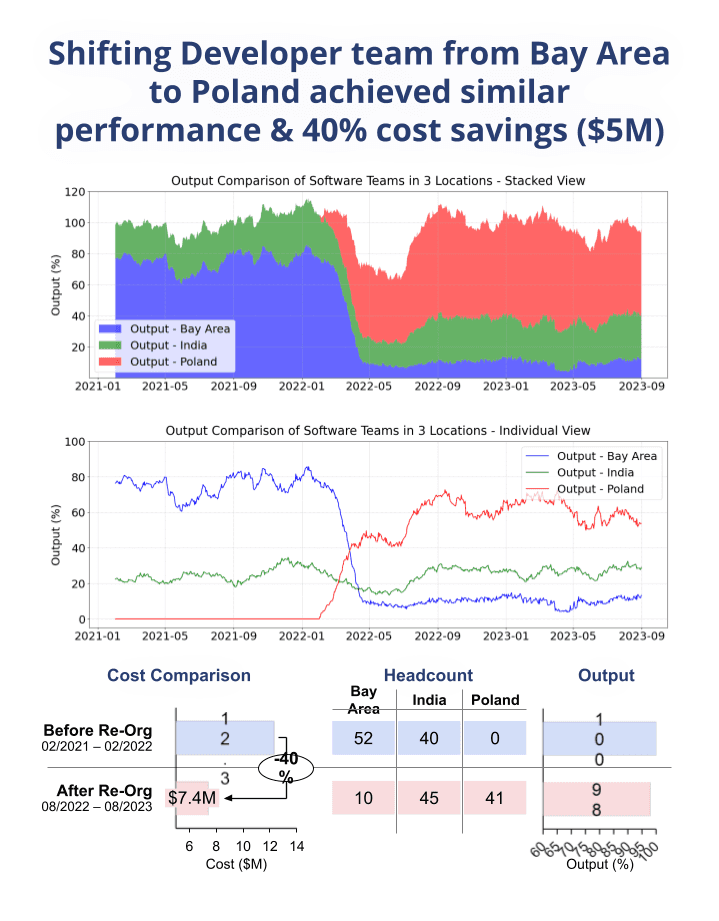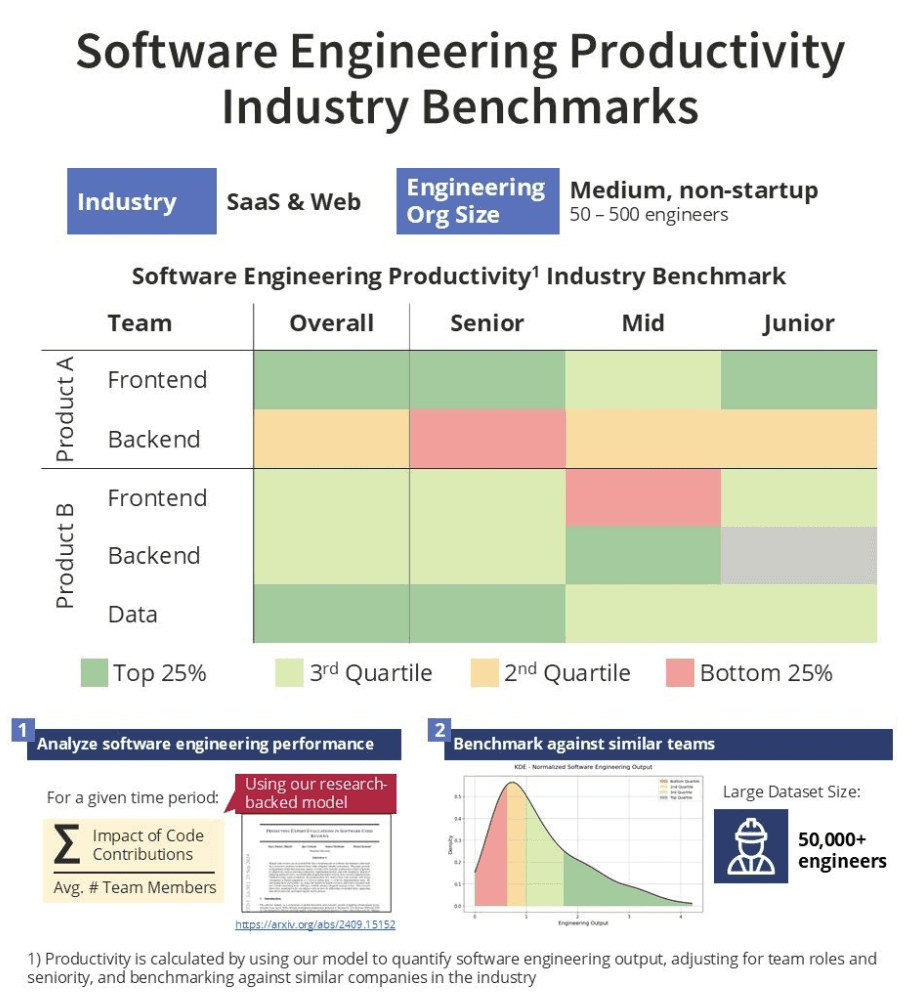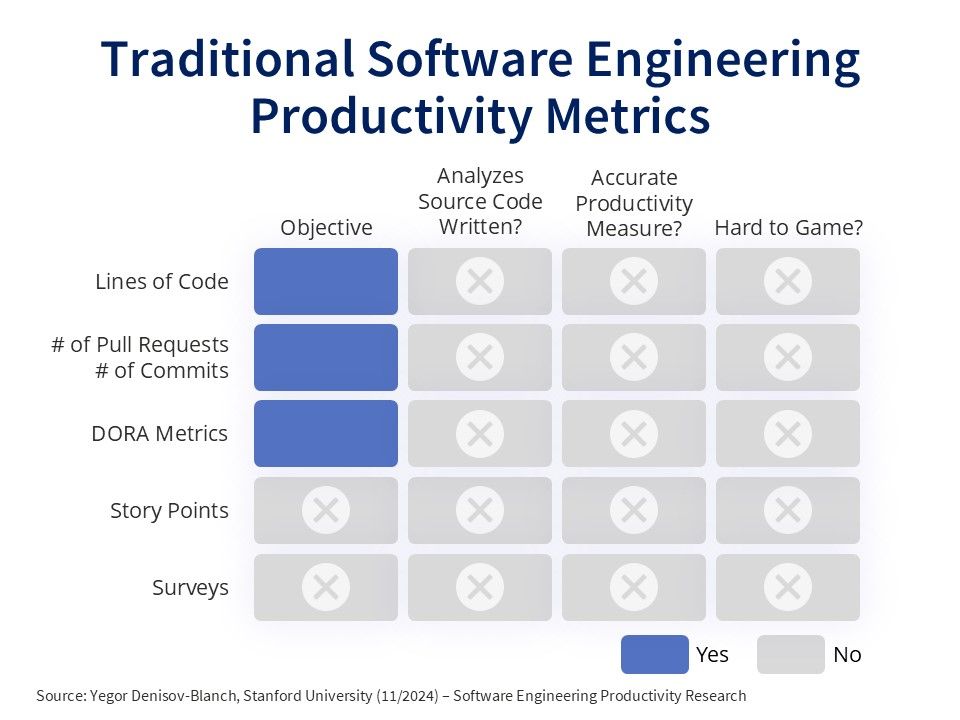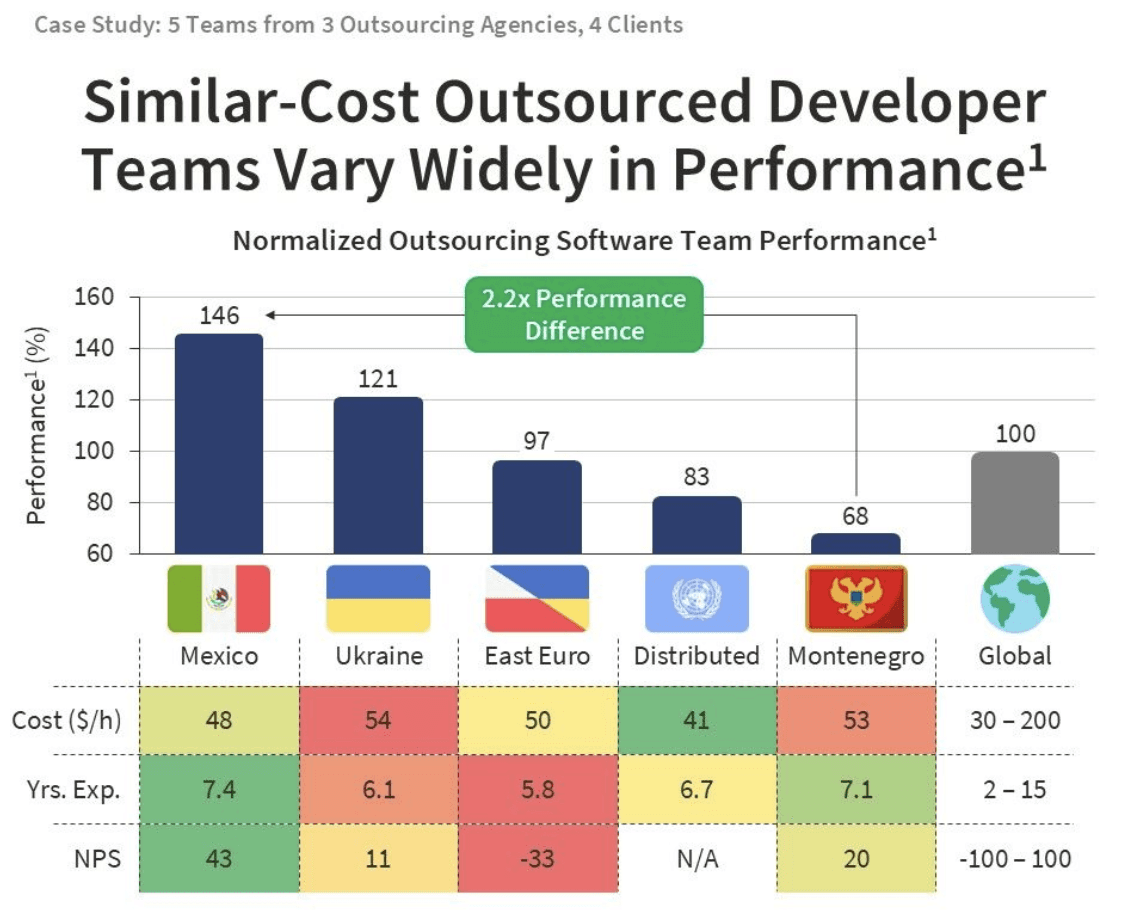
One company successfully re-organized their ~90-person team, replacing 42 Bay Area engineers (>$200k avg. cost) with 41 in Poland ($80k avg. cost) and 5 in India ($35k avg. cost).
They reduced their annual engineering spend from $12.3M to $7.4M.
After about six months, the new team's performance almost matched the original team's, both quantitatively and qualitatively.
Making these high-stakes decisions is risky and outcomes can vary. To increase your odds of success, rely on objective data. However, be cautious with traditional developer productivity metrics, as they may not provide an accurate picture.
Traditional metrics don't analyze the source code written, fail to reliably measure developer productivity, can be easily manipulated, and may incentivize undesirable behavior.

Methodology:
Using an algorithm developed from research conducted at Stanford, we quantitatively assess developer productivity by analyzing the functional aspects of source code across Git repositories. We measure and score what the code does, commit by commit. The algorithm generates a language-agnostic and style-independent metric for evaluating both individual developers and development teams.
About Our Mission:
This is part of a research initiative at Stanford aimed at quantifying software engineering productivity.
Our goal is to help engineering teams make decisions based on objective data, not intuition and politics.
Our research participants use our algorithm to make decisions about work methods, team setup, outsourcing, tool use, etc.





